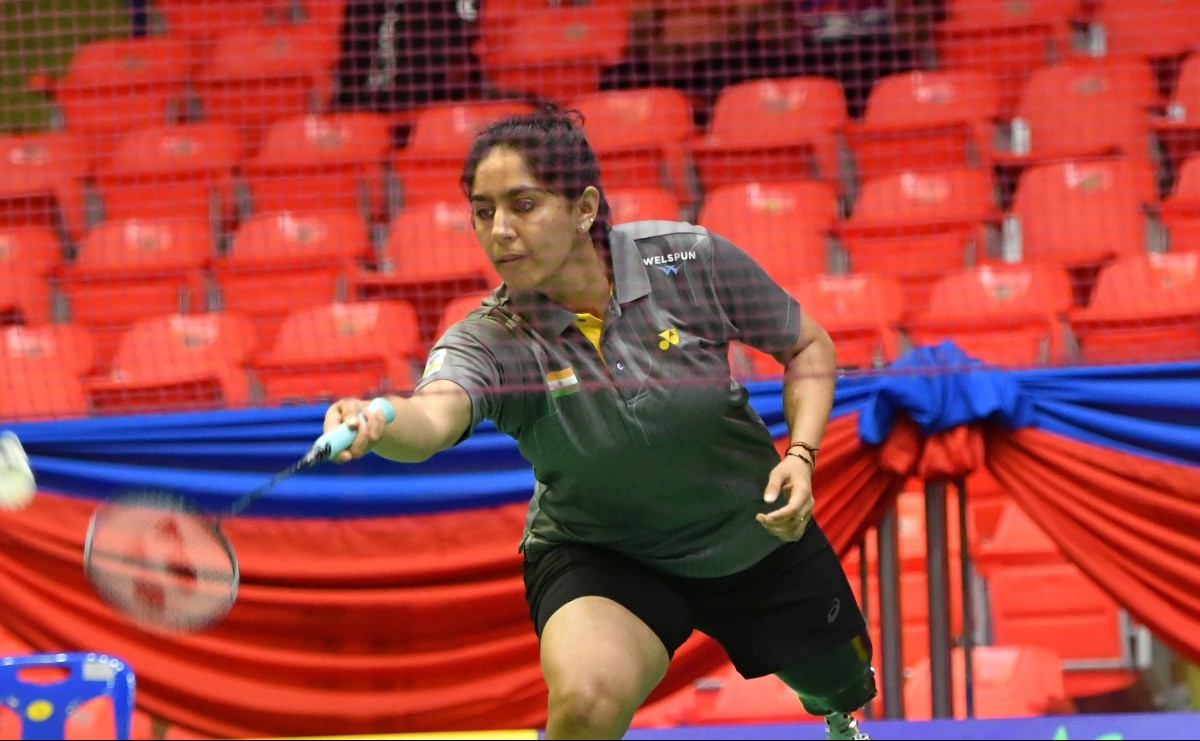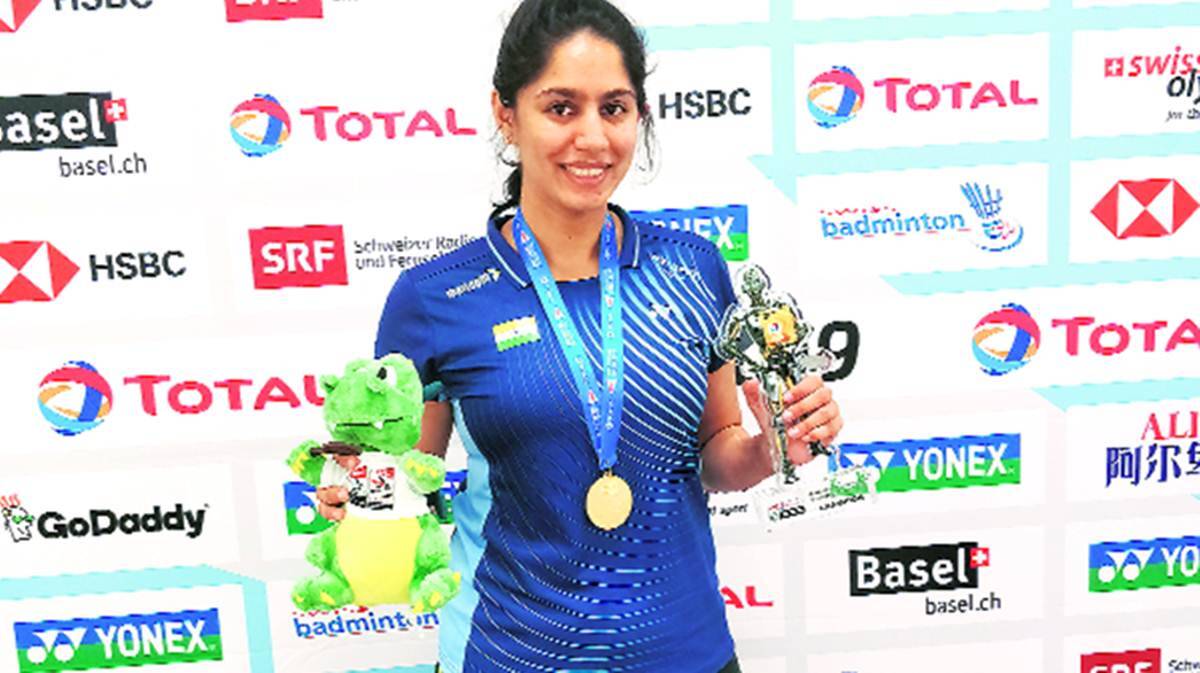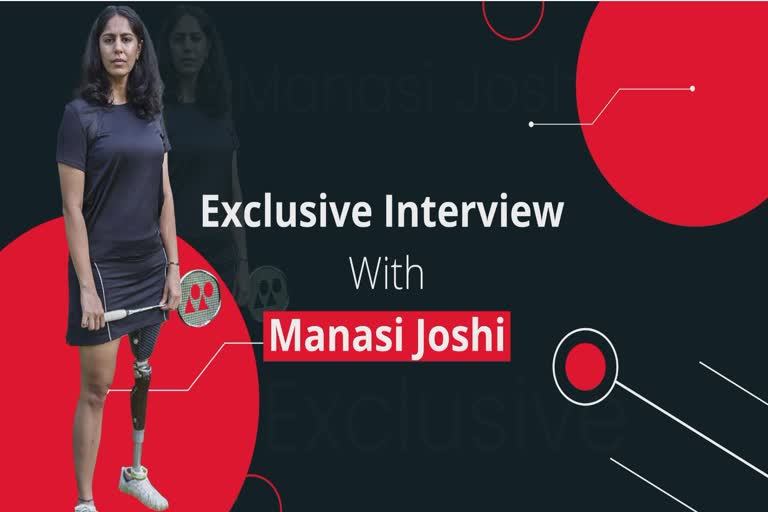In 2019, Manasi Joshi created a frenzy by winning the Para-Badminton World Championships women's singles gold. India had a world champion in Basel (Switzerland) even before the entire nation turned its attention to BWF women's singles gold medallist PV Sindhu. A year later Joshi found herself on the cover page of TIME magazine. In a conversation with ETV Bharat, she talks about what it means to be featured on TIME magazine, her future plans and the roller-coaster ride she underwent after she met with an accident in 2011.
Excerpts:
Q. Last year, your hard work translated into a gold medal at Basel in Switzerland and almost a year later, you are on the cover of TIME magazine’s Next Generation Leaders. How do you see the journey in the last two years?
For the last two years, it has been a journey of a lot of hard work, effort and complete concentration on badminton. Last year in August, I won gold at the World Championship. After that I kept on playing tournaments. A lot of different events started happening like in one instance I broke my prosthesis and the next time I broke the charger of my prosthesis. I had faced many other technical difficulties after my world title. But I had a fruitful end before the corona. I won a bronze at a Peru Para-badminton International. After world’s, I have stopped playing singles altogether. I was concentrating to qualify for Paralympics doubles and mixed doubles.
Then, I played in Peru where I got bronze. After corona, I am stuck at home and using this time to learn different skills and many other things as well. This year, I am making sure that I use my time in the best possible way.

Q. Has it been difficult under lockdown?
For me, yes, definitely. Lockdown has been difficult for all of us including me. I had a difficulty because I was stuck at home. There was a time when I couldn’t even fit my prosthetic leg…because you require gravity for your muscles to tone and once you are at home and not wearing it, it gets expanded. And I was stuck at home. I went to Mumbai once the unlock started happening and got myself a new socket. Also, I got myself a new blade for running. It was difficult because I was not able to train like I used to before. I used to train six days, two times in a day. We used to do three sessions in a day, twice. Everything came up to one session or two sessions every few days. My intensity decreased during the lockdown. But, again, it has started picking up pace now.
Q. Tell us, what does this new recognition mean to you?
When the TIME had nominated me as a ‘next generation leaders’, I feel it’s a matter of great pride to represent a community in India which is so under-represented or to be a part and voice of people with disabilities in our country. I never knew that the tweets that I am making or things I am telling in the media is actually raising awareness about disability in India. I feel more responsible because I have been featured as next generation leaders. I feel more honoured and definitely I have to become a voice for the physically challenged in our country.
Q. Let’s apprise our readers with your life. When and why did you take up badminton?
I have been playing badminton since childhood. I used to play for my school, college and corporate. In the year 2011, I met with an accident and lost my left leg to it. After 45 days of hospitalisation when I came back, I had to relearn everything again. Badminton being a part of my identity, I wanted to relearn the sport. And to relearn, how to work again and to do everything again, I also chose to play badminton and this is how I kept on playing the sport. It helped me in my rehabilitation process and since 2012, I have been playing badminton for my fitness purpose and have been representing at corporate level. In 2015, I started playing at international level and since then I have been participating at various international para-badminton competitions and winning medals and making our country proud.
Q. Do you think the accident that happened in 2011 made you stronger as a person?
I think whatever happens in our lives, it adds something to it, right? Definitely, it made me stronger but I knew I could deal with a situation or I think we as humans are powerful and we can deal with anything. With the support of my family, I became stronger. I won’t say that the accident made me stronger, I would say the support I got after the accident made me stronger.
Q. Do you think the mindset towards Para sport has changed over the years, especially with you and others doing well?
I think the mindset is changing regarding people with disabilities and para sports in the country. We, as a nation, are becoming more and more inclusive. We have reached there; mindset is changing like you are taking my interview, this is a part of a changed mindset. We all are productive individuals of the society. I think the change is happening. I will say the current generation, the millennials…they have been very open in talking about other discriminatory things. This generation is actually changing the way we perceive things that were a little taboo to talk about, say caste, disability or religion. I think this generation is very open about it. People are talking and starting conversations.
Q. Do you feel you are getting enough support?
I am very happy with the support I am getting. I am supported and sponsored by various companies in India and abroad. They take care of all my expenses. I still wish we have more and more support from the government at the grassroots and I do see the change happening in our country.

Q. You won the championship a day before PV Sindhu last year. And she deserves all the credit for what she has accomplished. We worship our cricketers. Have you ever been disappointed by the selective approach we have towards players?
It’s a very controversial question. We, as a country, love sportspersons and I don’t blame people talking and promoting one particular sport like cricket or badminton. And I think it’s ok. It definitely adds to it, but I think it’s ok because you can’t do anything about it as of now. I think the media needs to step in over here. Marketing and technique of the sport needs to change here or how you as media are portraying other sports is important because the more the sports starts to make the front page news, that’s when people will start appreciating the sport more. This is what has happened to cricket, badminton and kabaddi. The IPL is underway, and because of these leagues, the sport has become more popular. We may have some leagues in future about para sports too which you will feel at that time that these leagues are making the sport popular. You can’t blame anyone right now at how we Indians are consuming sports but how we agencies are asking the media to put out news. I think that needs to change.
Q. Are you uncomfortable being called specially-abled or differently-abled?
I am not uncomfortable. There is a pronoun everybody uses in front of their name: him, her, he or she. I think I would like to add this thing ‘disabled’ because there is nothing wrong in being disabled. Disability doesn’t take anything away from me. Currently, I am an empowered person because of the education and opportunities that I have got. And I think disability is a part of me just like anything else like my education, background and friend circle, which are all part of my identity. I don’t want to be reduced to be called as a differently-abled person. Before and after the accident, I am just like everyone else. It’s just that the way people perceive me is so different. It reduces me to something which I am not. I would rather ask people to call disabled rather than differently-abled or specially-abled because I don’t think God have given us any different abilities. It’s is only through sheer hard work that people earn those abilities. Like when people say that those who have blindness have special ability to perceive different sounds and vibrations but I don’t think so. I think people have worked hard so that they understand everything about sounds and touch. It is with everyone of us. Even we have got the ability to understand sounds. I think we as people, shouldn't be called as specially-abled because God has not given us any extra abilities. We all are born equal and everybody works very hard. None of us should be reduced to a term.
Q. What are your future plans now?
My future plans are to qualify for Paralympic games and be a torchbearer at the game next year.
Q. Can we expect a medal from you?
I hope I get selected. Getting a medal is second after I get selected.
--Ayushmaan Pandey


